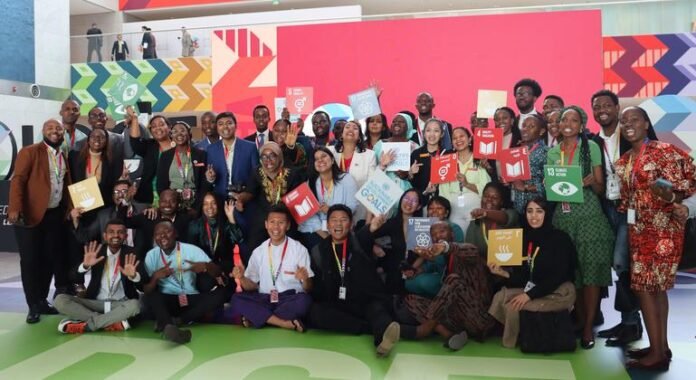Late September is the busiest time at UN headquarters, when world leaders descend on New York for high-level debates at the General Assembly. This year, it won’t be ordinary – UN Secretary-General Antonio Guterres is taking the opportunity to convene a Future Summit, bringing together world leaders, civil society leaders and youth advocates.
The conference will feature a series of panel discussions, keynote speeches and other events divided into five main themes, as well as some ‘extra’ themes such as human rights, the climate crisis and gender equality.
1. Financing for development
“The international financial architecture built in 1945 in the immediate aftermath of World War II is facing historic stress – and it is failing this test,” said UN Secretary-General Antonio Guterres.
In view of the fast approaching deadline of the ‘Agenda 2030 for Sustainable Development’ the need to reform this system has become more urgent. The United Nations has created a blueprint for building a better future – the 2030 Development Agenda.
The summit has an outcome document, known as the Agreement for the Future. According to the secretary-general, the document reflects countries’ commitment to “use all tools to address the problem at the global level” and to take “bold steps” to implement the agenda.
These include combating hunger and eradicating poverty; reducing inequality; And a major emphasis is placed on increasing ambition to tackle climate change.
2. International peace and security
The United Nations has described the current global situation as “uniquely dangerous”, with the risk of conflict between major powers at its highest level since the Cold War and the possibility of a nuclear war for the first time in decades. . At the same time, the climate crisis is motivating migration and increasing tensions.
Not only that, the use of new technology as a weapon is creating new threats in this interconnected world.
In this tense context, in 2023 the UN released a ‘New Agenda for Peace’ for the first time in decades, proposing solutions for peacekeeping, peacebuilding, disarmament and Security Council reform.
The recommendations outlined in that new peace agenda will form part of future agreements adopted at future summits.
3. Science, Technology and Innovation and Digital Collaboration

UN member states will also ratify the Global Digital Compact, which aims to build greater trust in the internet and ensure people have more choice about how their data is used. It will also aim to establish accountability for discriminatory and misleading content.
The agreement warns of the dangers of misuse of AI, which could deepen divisions within and between countries, increase insecurity, violate human rights and increase inequality.
The document lists a number of commitments and actions that highlight the ‘digital divide’: 2.6 billion people do not have access to the internet, cut off from opportunities available through online tools.
The agreement calls for bringing all schools and hospitals online with the help of the UN-backed GIGA initiative and digital literacy skills training. An international scientific panel and an annual global dialogue on AI governance will be established. Also, by 2030, it is planned to develop global AI standards that benefit everyone.
4. Youth and future generations

The third document adopted at the summit will be the Future Generations Declaration. As well as eliminating inequality, ensuring quality education for all and ensuring long-term planning, the Declaration proposes a new entry into the United Nations, a Special Envoy for Future Generations, which will be the UN Future Lab, the organization’s long-term thinking and research arm, the results of the UN Future Lab. Will work to deliver.
The Summit will open and close with Youth Voices: a youth-led day of action at the prestigious General Assembly on Friday 20 September, featuring activists, celebrities, musical performances and dialogue. On Monday, September 23, the Trusteeship Council Chamber will hold a dialogue on improving the global system for current and future generations.
5. World governance
When the United Nations came into being nearly 80 years ago, the world was emerging from a global conflict that was so devastating that world leaders sought to create an organization that would ensure such a crisis would never happen again.
This sentiment remains relevant today, but there is widespread agreement that the instruments drafted at the founding of the United Nations need a major revision to meet their objectives.
At the summit, world leaders will engage in discussions aimed at making these changes and raise the issue of reforming one of those instruments, the UN Security Council, which has been a hotly debated issue for years.
Apart from this, space will also be focused. In recent years, the demand for strong governance structures for these activities has increased as private sector use of space has grown rapidly and new space powers have joined established actors.
Major intergovernmental initiatives are also being developed to establish a long-term human presence on the Moon, credible programs are underway to operate human spacecraft to Mars, and various concepts for mining resources from the Moon and other planets are being explored.
Consequently, new forms of governance are desperately needed to ensure that this massive growth can occur in a safe and sustainable manner.

